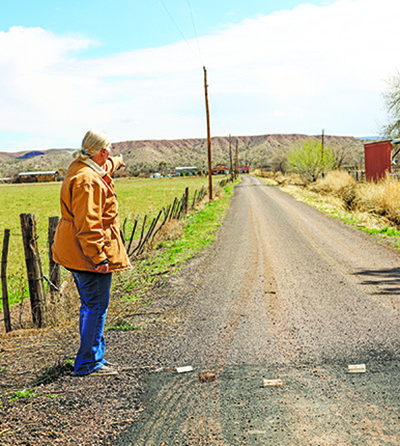
Less than two years after a white supremacists’ rally in Charlottesville, Virginia, took the life of Heather Heyer, a young woman peacefully protesting that neo-Nazi “Unite the Right” gathering, several positive strides have been taken by city government. In handsome Charlottesville, where Thomas Jefferson planted the University of Virginia beneath the Blue Ridge Mountains, the City Council voted to divest the municipality’s portfolio of all weapons manufacturers’ and fossil fuel producers’ stock.
Viewing run-away militarization and climate change as threats to life on Earth, city government responded to a well-organized citizens’ movement and divested from Boeing, Honeywell, and several small arms manufacturers. The Council then voted to also divest from corporations involved in the production and combustion of fossil fuels, pointing out that the motivation behind much current U.S. warfare is the desire to control and possess other sovereign nations’ natural resources — such as their petroleum reserves.
The small arms manufacturers that Charlottesville purged from the city’s portfolio, indeed did make and market guns which the white nationalists brought to their deadly rally in the historic town center in 2017. Meanwhile, the rate of mass shootings in America ranks the highest in the “developed” world. It took Charlottesville citizens a mere three months’ campaign to convince the City Council of the wisdom of divesting from the “death trips” that are part of our civilization — and to instead, opt for hope and healing.
Documentation presented by the citizens’ movement and cited by the Council before they voted points out that the five-year average temperature in Virginia began steadily climbing in the 1970s, from 54.6 degrees Fahrenheit to a 56.2 degree average by 2012 — roughly one-half degree per decade. At this rate, rather-mountainous Virginia will be as warm as northern Florida by 2100.
Heat waves now cause more deaths in the U.S. than all other extreme weather combined — hurricanes, floods, lightening, blizzards and tornados included. If North America continues warming at this unsustainable rate, it is estimated that within 20 years, 150 persons here will perish of extreme heat each and every summer day.
In order to corral the global climate’s run-away warming below a 3-degree Fahrenheit rise (the goal set by the Paris Climate Accord), fossil fuel emissions must be nearly halved by 2030 and shrunk to zero (or as close as we can humanly achieve) by 2050. Otherwise, our planet’s average temperature is set to rise 4.5 degrees by mid-century. And sadly, life on Earth could well become agonizing, as the death of entire biomes accelerate in unthinkable cascades.
In 2050, my little grandson will be 38 years old. And he will have been robbed of his most precious birthright: a lovely, living planet. This is not hyperbole; it is science. And the slimness of our chances is a crying shame!
Save the Whales!
The staggering BP oil-rig blowout ten years ago brought a behemoth marine mammal species to its proverbial knees (if only whales had knees). The ‘Gulf of Mexico whale’ (a subspecies of the Bryde’s whale) was already on the ropes from the seismic blasting of off-shore oil exploration, from collisions with ships, and from fish-net entanglement. Then the British Petroleum disaster struck, directly killing a quarter of the remaining population. (Remember the toxic and untested “dispersant” BP used?)
With only 33 individuals left, the Gulf whale finally made the Endangered Species list a year and a half ago. It hadn’t helped that Trump gutted the National Marine Fisheries Service. Yet the great leviathan, weighing in at nearly 60,000 pounds and reaching over 40 feet in length — and being a rare, non-migrating ‘resident species’ of the Gulf — at least now stands a fighting chance at survival!
How We Stack Up
As a percentage of all worldwide military expenditures in 2020:
USA=38% China=14% Russia=3.4%
sources: Nature’s Voice, National Oceanic & Atmospheric Administration, Stockholm Int’l Peace Research Institute, World Beyond War



















